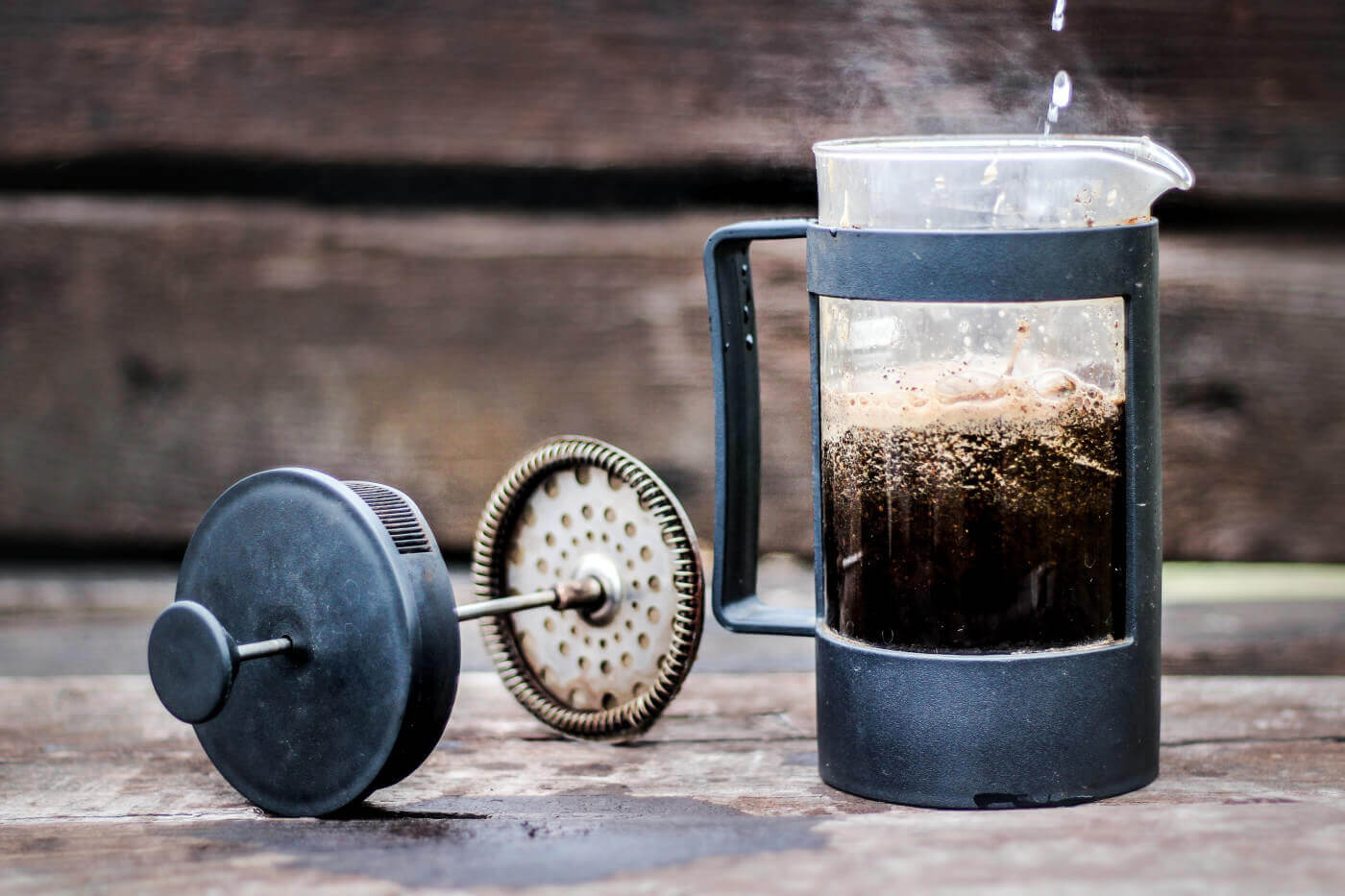If you’ve ever wondered why your morning cup of coffee seems to send you straight to the bathroom, you’re not alone. Many of us experience this curious phenomenon, and it’s more common than you might think.
Coffee promotes plenty of health benefits, like improved focus. However, drinking coffee triggers muscle contractions in your colon and stomach lining, leading to what’s commonly known as “coffee poops.”
In this article, we’ll dive into the science behind why coffee makes you poop and answer some of the most frequently asked questions on the topic. So, grab your favorite brew and let’s get started!
Why Does Coffee Give You Diarrhea?
When it comes to coffee’s ability to make you poop, caffeine often gets the spotlight. But is it really the main culprit? Let’s dive into how caffeine interacts with our digestive system.
First off, caffeine is a well-known stimulant. It doesn’t just wake up your brain; it also stimulates your colon. Here’s how:
- Increased Peristalsis: Drinking caffeinated coffee can increase the contractions in your colon, known as peristalsis. These contractions help move waste through your digestive tract more quickly.
- Gastrin Release: Caffeinated coffee can also stimulate the release of gastrin, a hormone that promotes the secretion of gastric acid. Gastrin can speed up the digestive process, making you feel the urge to go.
- Cholecystokinin (CCK): This hormone is released when you consume caffeine, and it can stimulate bowel activity.
But caffeine isn’t the only player in this game. Other caffeinated beverages like tea and energy drinks don’t seem to have the same strong laxative effect as coffee. This suggests that while caffeine contributes, it’s not the sole reason coffee makes you poop.
Here’s a quick comparison:
Beverage | Average Caffeine Content (mg) | Laxative Effect |
Coffee (8 oz) | 95 | High |
Tea (8 oz) | 47 | Low |
Energy Drink (8 oz) | 80 | Moderate |
As you can see, coffee has a higher caffeine content than tea, but it is similar to energy drinks. Yet, its laxative effect is more pronounced. This indicates that other compounds in coffee might be working alongside caffeine to stimulate bowel movements.
So, while caffeine plays a significant role, it’s not the only factor. The unique combination of compounds in coffee, including caffeine, seems to work together to give you that urge to poop.
Caffeinated Coffee vs Decaffeinated Coffee: Is There a Difference?
Hot or iced coffee can cause muscle contractions, signaling your body with an urge to poop.
When drinking your morning coffee, you may choose between caffeinated or decaffeinated coffee. If you’ve looked around for the answer to “why does coffee make you poop?” over the internet, you may have looked for alternatives to solve your personal issues with untimely bowel movements.
Many people wonder if decaf coffee has the same impact as its caffeinated counterpart. Let’s dive into this topic and see how decaf stacks up against regular coffee.
While caffeine is often blamed for coffee’s laxative effect, it’s not the only player in the game. Decaf coffee still contains many of the same compounds as regular coffee, minus most of the caffeine.
These compounds can still stimulate your digestive system.
- Chlorogenic Acids: These are antioxidants found in both regular and decaf coffee. They can increase stomach acid levels and promote bowel movements.
- N-alkanoyl-5-hydroxytryptamides: These compounds can stimulate the colon and contribute to the laxative effect.
- Magnesium: Coffee, whether decaf or regular, contains magnesium, which can help with bowel regularity.
While decaf coffee does have a milder effect compared to regular coffee, it can still make you poop.
So, while decaf coffee might not pack the same punch as regular coffee in terms of making you poop, it can still have an effect. If you’re sensitive to coffee’s laxative properties but love the taste, decaf might be a good middle-ground for you.
It’s also worth noting that the warm temperature of coffee can stimulate the digestive system. The act of drinking a warm beverage can trigger what’s known as the “gastrocolic reflex,” which is a natural response that signals your colon to make room for incoming food and drink.
So, even without the caffeine, decaf coffee has plenty of other compounds that can get your digestive system moving. Whether it’s the chlorogenic acids, N-alkanoyl-5-hydroxytryptamides, or magnesium, there’s more to that cup of decaf than meets the eye.
What Compounds in Coffee Stimulate Bowel Movements?
You might be surprised to learn that it’s not just the caffeine in coffee that gets bowel movements moving. Coffee contains a variety of compounds that can stimulate your digestive system. Let’s dive into some of the key players:
Chlorogenic Acids
These are a group of antioxidants found in coffee. They can increase the production of stomach acid, which helps to move food through your digestive tract more quickly. This can lead to a faster transit time and, consequently, the urge to poop.
N-alkanoyl-5-hydroxytryptamides
Quite a mouthful, right? These compounds are unique to coffee and have been shown to stimulate the production of stomach acid and bile. Both of these substances play a crucial role in digestion and can speed up the process.
Magnesium
Coffee is a decent source of magnesium, a mineral that can help to relax the muscles in your digestive tract. This relaxation can make it easier for stool to pass through your intestines.
Melanoidins
These are formed during the roasting process and are known to have a prebiotic effect. Prebiotics feed the good bacteria in your gut, which can improve overall digestive health and regularity.
How Quickly Does Coffee Affect the Digestive System?
While scientific studies provide a general idea, personal anecdotes can vary widely. Some people might feel the urge almost immediately, while others might not notice any effect at all.
The speed at which coffee affects the digestive system can vary significantly from person to person. This variation can be attributed to several factors, including individual metabolism, tolerance to caffeine, and overall digestive health. Let’s dive into some of the key reasons why this happens:
Metabolism
People with the AA genotype, characterized by a fast metabolism, metabolize caffeine at a rapid pace. Due to this quick clearance, the stimulating effects of caffeine are shorter-lived, which often means they experience less sensitivity to common side effects like insomnia and jitteriness.
As a result, these fast metabolizers might consume more significant amounts of caffeine to maintain their desired level of alertness. However, this increased intake could potentially lead to excessive consumption, posing risks to their health.
On the other hand, individuals with the AC or CC genotypes, indicative of a slow metabolism, process caffeine more slowly. This slower metabolism causes the stimulant effects to last longer, making them more prone to experiencing anxiety, sleep disruptions, and other adverse side effects.
Therefore, these individuals usually need to be more cautious with their caffeine consumption to avoid such adverse outcomes.
Caffeine Tolerance
Regular coffee drinkers often develop a tolerance to caffeine, which can reduce its immediate impact on the digestive system.
New or occasional coffee drinkers might feel the effects more rapidly and intensely.
Digestive Health
Individuals with certain digestive conditions, such as irritable bowel syndrome (IBS), may be more sensitive to coffee’s effects.
A healthy digestive system might handle coffee differently compared to one that is compromised.
Genetics
Genetic factors can influence how quickly your body metabolizes caffeine. Some people are genetically predisposed to be fast metabolizers, while others are slow metabolizers.
Diet and Lifestyle
A diet high in fiber can affect how quickly coffee moves through your digestive system.
Understanding these factors can help you better predict how coffee will affect you personally. If you find that coffee has a particularly strong or rapid effect on your digestive system, it might be worth considering these variables and adjusting your coffee consumption accordingly.
What Are the Risks Of Drinking Coffee on an Empty Stomach?
Drinking coffee on an empty stomach can have some interesting effects on your body, and it’s worth knowing about the potential risks involved. Besides stimulating bowel movement, drinking too much of your morning cup of coffee can also lead to digestive and kidney diseases.
When there’s no food in your stomach, the coffee can stimulate the production of stomach acid more directly. This increase in stomach acid can lead to quicker digestion and, consequently, a faster trip to the bathroom.
Here are some of the risks of drinking coffee on an empty stomach
Increased Acidity
When you drink coffee on an empty stomach, it can increase the production of stomach acid. This might lead to:
- Heartburn: That burning sensation in your chest can be quite uncomfortable.
- Acid Reflux: Coffee can relax the lower esophageal sphincter, allowing stomach acid to move up into the esophagus.
- Gastric Discomfort: You might experience stomach cramps or a general feeling of unease.
Hormonal Imbalance
Coffee stimulates the production of cortisol, the stress hormone. Drinking it on an empty stomach can lead to:
- Increased Stress Levels: Higher cortisol levels can make you feel more anxious or jittery.
- Disrupted Hormonal Balance: Over time, consistently high cortisol levels can affect other hormones in your body.
Nutrient Absorption
When you drink coffee, it can interfere with the absorption of certain nutrients, especially when consumed on an empty stomach. This can include:
- Iron: Coffee can inhibit the absorption of non-heme iron, which is found in plant-based foods.
- Calcium: High caffeine intake can reduce calcium absorption, which is crucial for bone health.
Gastrointestinal Issues
Drinking coffee on an empty stomach can sometimes lead to gastrointestinal problems such as:
- Diarrhea: The laxative effect of coffee can be more pronounced on an empty stomach.
- Irritable Bowel Syndrome (IBS): For those with IBS, coffee can exacerbate symptoms like cramping and bloating.
- Acid Reflux and Heartburn: Coffee is acidic, and drinking too much can increase the production of stomach acid. This can lead to acid reflux or heartburn, which is that uncomfortable burning sensation in your chest or throat.
Upgrade Your Morning Cup of Joe
If you find yourself running to the bathroom every time you drink coffee, you’re not without hope. It’s possible to develop a tolerance to coffee’s laxative effect.
Your body can get used to the compounds in coffee that stimulate bowel movements.
- Gradual Increase: Slowly increase your coffee intake to give your body time to adapt.
- Alternate Beverages: Mix in other beverages like tea to give your digestive system a break.
- Monitor Your Diet: Pay attention to other foods that might be contributing to the effect and adjust accordingly.
In summary, coffee’s ability to make you poop is influenced by a variety of factors, including its caffeine content, specific compounds, and how it’s consumed. Whether you’re a regular coffee drinker or just curious about its effects, understanding these elements can help you manage your digestive health better.
So, next time you enjoy your cup of joe, you’ll know exactly why it might send you running to the bathroom!
If you want to savor your coffee without sticking to a rigid routine, feel free to add some variety. At Bones Coffee Company, we offer an exciting array of flavored coffee with a burst of taste.
Discover a new way to enjoy your daily coffee by exploring our bestselling selection today!




